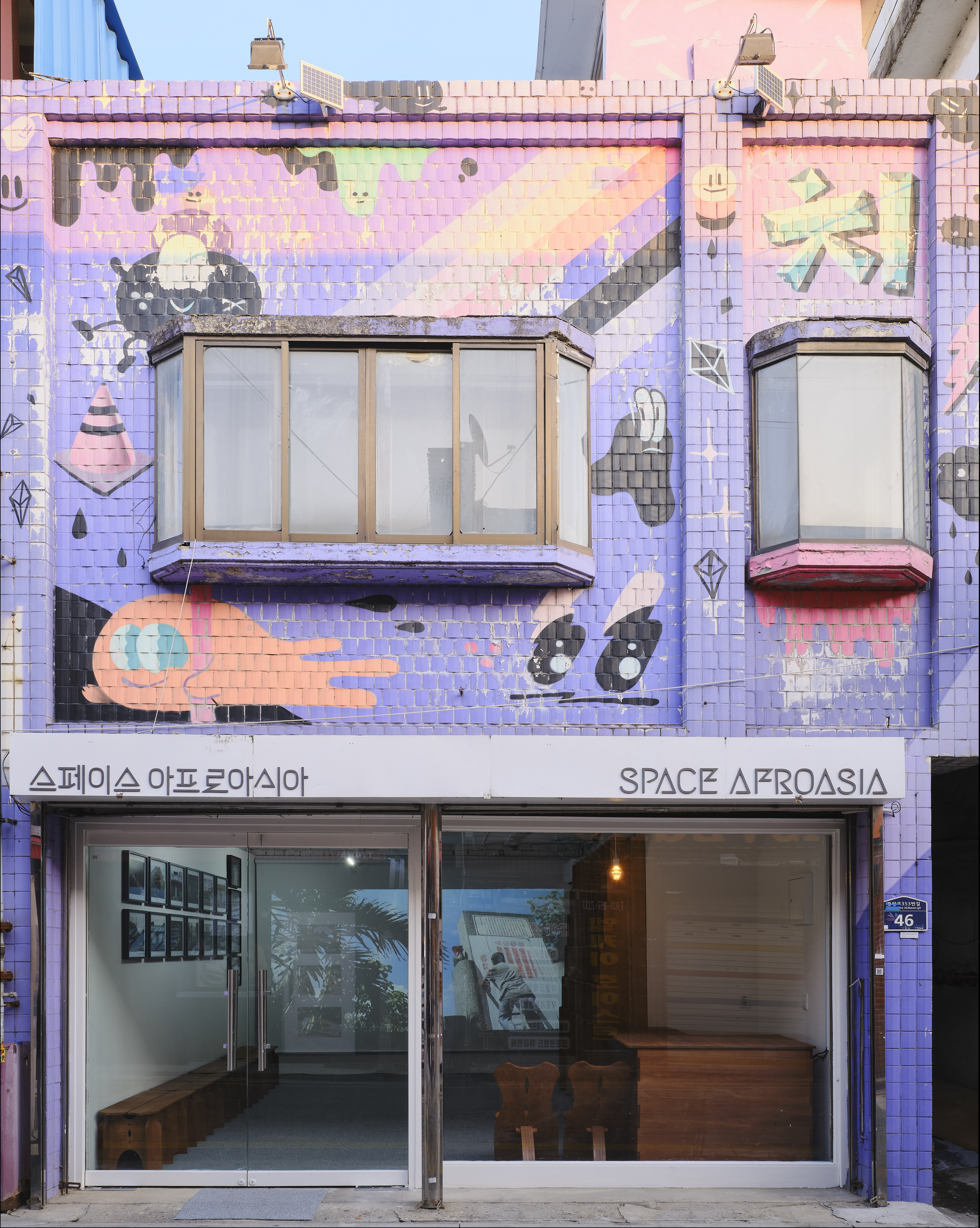 스페이스 아프로아시아 SPACE AFROASIA
지금, 우리는 WHAT'S ON
프레스 PRESS
오시는 길 PLAN YOUR VISIT
스페이스 아프로아시아 SPACE AFROASIA
지금, 우리는 WHAT'S ON
프레스 PRESS
오시는 길 PLAN YOUR VISIT
 스페이스 아프로아시아 SPACE AFROASIA
지금, 우리는 WHAT'S ON
프레스 PRESS
오시는 길 PLAN YOUR VISIT
스페이스 아프로아시아 SPACE AFROASIA
지금, 우리는 WHAT'S ON
프레스 PRESS
오시는 길 PLAN YOUR VISIT
|

|
|
The art world has come to a moment of retrospection. Modernism’s foundational thesis that draws a line between "us" and "them" is now being held responsible for rationalizing colonialism and a myriad of environmental issues, and is considered the point of origin for critical social and structural issues of our time. The art world itself is just beginning to realize its own limitations; it is trapped in an endless loop of self-replication that results in stale, uninspired art. Formalism still reigns as it always has in the world of visual arts, but there are tangible efforts to find alternatives.
Despite the changes in narrative, Europe remains at center stage, leaving "other" regions subject to exoticism and orientalism. It is imperative that the art world renews its approach vis-a-vis "us" and "them" for it to continue its evolution. Contemporary art must accept post-colonialism as a platform to the future instead of dismissing it as a fad of modern-day anxiety and panic. Korea reserves a unique place in this moment of history. She survived over thirty years of colonial rule at the hands of Imperial Japan and has succeeded in becoming one of the world’s most developed countries in less than a century since then. It is safe to say that Korea presents a rare insight into both sides of the paradigm and, because of that, perhaps holds an important key to change. Having said that, what should art aspire to be? The answer lies not only in Korea but in non-European regions such as Southeast Asia, Africa, and South America. Space AfroAsia is situated on Bosan Club Street in Dongducheon City. Opened in 2021, the space sits across the street from Camp Casey, the northernmost US military base in Gyeonggi Province. Dongducheon was home to up to six US military bases and camptowns that attracted a colorful diaspora, which set it aside from other regions in a country that claims to be homogeneous. Bosan-dong, the district that Space AfroAsia calls home, has long been the local center of commercial activity, hence it has become a potpourri of diverse cultures. While most US military bases have relocated and consolidated southwards to Pyeongtaek City, beginning in the year 2000, Camp Casey remains intact as its location near the de facto border with North Korea is considered too important to give up, although troop numbers have dropped by half. A trickle of Immigrants from all corners of the world are filling in the empty spaces left by the US Army and once again Bosan-dong has become a bustling and eclectic cultural melting pot. Space AfroAsia, in the heart of the ever-evolving Dongducheon City, will bear witness to Korea’s history and global perspectives. Moreover it will build a solidarity between Asian and African art worlds through a variety of international projects. Space AfroAsia is building a meeting point for art both inside and outside Korea, while rethinking the role of art in our society. |
 |